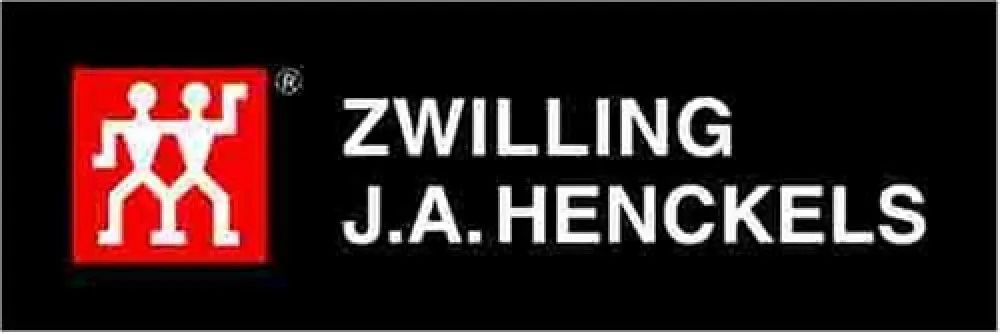On This Day in History
New Year's Day - The most celebrated holiday around the world.
January 1, 1776 - During the American Revolution, George Washington unveiled the Grand Union Flag, the first national flag in America.
January 1, 1863 - The Emancipation Proclamation by President Abraham Lincoln freed the slaves in the states rebelling against the Union.
January 1, 1892 - Ellis Island in New York Harbor opened. Over 20 million new arrivals to America were processed until its closing in 1954.
Birthday - Betsy Ross (1752-1836) was born in Philadelphia, Pennsylvania. She was a seamstress credited with helping to originate and sew the Stars and Stripes flag of America in 1776.
January 3, 1777 - During the American Revolution, General George Washington defeated the British at Princeton and drove them back toward New Brunswick. Washington then established winter quarters at Morristown, New Jersey
January 3, 1959 - Alaska was admitted as the 49th U.S. state with a land mass almost one-fifth the size of the lower 48 states together.
January 4, 1790 - President George Washington delivered the first State of the Union address.
January 5, 1919 - German Communists in Berlin led by Rosa Luxemburg and Karl Liebknecht attempted to take over the government by seizing a number of buildings. However, ten days later, they were both assassinated by German soldiers.
January 5, 1925 - Nellie Tayloe Ross of Wyoming became the first female governor inaugurated in the U.S.
January 7, 1714 - A patent was issued for the first typewriter designed by British inventor Henry Mill "for the impressing or transcribing of letters singly or progressively one after another, as in writing."
January 7, 1782 - The first U.S. commercial bank opened as the Bank of North America in Philadelphia.
January 8, 1815 - The Battle of New Orleans occurred as General Andrew Jackson and American troops defended themselves against a British attack, inflicting over 2,000 casualties. Both sides in this battle were unaware that peace had been declared two weeks earlier with the signing of the Treaty of Ghent ending the War of 1812.
January 8, 1982 - The American Telephone and Telegraph (AT&T) Company was broken up as a result of an antitrust suit. AT&T gave up 22 local Bell system companies, opening the U.S. telephone system to competition.
January 8, 1987 - The Dow Jones industrial average first topped the 2,000 mark.
January 10, 1776 - Common Sense, a fifty-page pamphlet by Thomas Paine, was published. It sold over 500,000 copies in America and Europe, influencing, among others, the authors of the Declaration of Independence.
January 11, 1964 - The U.S. Surgeon General declared cigarettes may be hazardous to health, the first such official government report.
Birthday - Alexander Hamilton (1755-1804) was born in the British West Indies. He was a founder of the United States who favored a strong central government and co-authored the Federalist Papers, a series of essays in defense of the new Constitution. He was selected by George Washington to be the first Secretary of the Treasury. He died from a gunshot wound received during a duel with Aaron Burr.
January 12, 1932 - Hattie W. Caraway, a Democrat from Arkansas, was appointed to the U.S. Senate to fill the term of her deceased husband. Later in the year, she became the first woman elected to the Senate.
January 13, 1990 - Douglas Wilder of Virginia became the first African American governor in the U.S. as he took the oath of office in Richmond.
January 15, 1870 - The first use of a donkey to symbolize the Democratic Party in America appeared in a cartoon in Harper's Weekly, criticizing former secretary of war Edwin Stanton with the caption, "A Live Jackass Kicking a Dead Lion."
Birthday - Martin Luther King (1929-1968) was born in Atlanta, Georgia. As an African American civil rights leader, he spoke eloquently and stressed nonviolent methods to achieve equality. He received the Nobel Peace Prize in 1964. He was assassinated in Memphis, Tennessee, on April 4, 1968. In 1983, the third Monday in January was designated a legal holiday in the U.S. to celebrate his birthday.
Birthday - Benjamin Franklin (1706-1790) was born in Boston, Massachusetts. Considered the Elder Statesman of the American Revolution, he displayed multiple talents as a printer, author, publisher, philosopher, scientist, diplomat and philanthropist. He signed both the Declaration of Independence and the new U.S. Constitution.
January 18, 1966 - Robert Clifton Weaver was sworn in as the first African American cabinet member in U.S. history, becoming President Lyndon B. Johnson's Secretary of Housing and Urban Development.
January 20, 1945 - Franklin Delano Roosevelt was inaugurated to an unprecedented fourth term as president of the United States. He had served since 1933.
January 23, 1849 - Elizabeth Blackwell was awarded her MD by the Medical Institute of Geneva, New York, thus becoming America's first woman doctor.
January 23, 1907 - Charles Curtis of Kansas became the first person of Native American ancestry to serve in the U.S Senate. He later served as vice president under President Herbert Hoover from 1929-33.
January 24, 1848 - The California gold rush began with the accidental discovery of the precious metal near Coloma during construction of a Sutter's sawmill. An announcement by President Polk later in the year caused a national sensation and resulted in a flood of "Forty-niners" seeking wealth.
January 24, 1895 - Hawaii's monarchy ended as Queen Liliuokalani was forced to abdicate. Hawaii was then annexed by the U.S. And remained a territory until statehood was granted in 1959.
January 25, 1959 - An American Airlines Boeing 707 made the first scheduled transcontinental U.S. flight, traveling from California to New York.
January 25, 1961 - President John F. Kennedy conducted the first live televised presidential news conference, five days after taking office.
January 28, 1915 - The U.S. Coast Guard was created by an Act of Congress, combining the Life Saving Service and the Revenue Cutter Service.
January 28, 1986 - The U.S. Space Shuttle Challenger exploded 74 seconds into its flight, killing seven persons, including Christa McAuliffe, a teacher who was to be the first ordinary citizen in space.
January 29, 1919 - The 18th Amendment to the U.S. Constitution (Prohibition Amendment) was ratified. For nearly 14 years, until December 5, 1933, the manufacture, transportation, and sale of alcoholic beverages were illegal in the United States. The Amendment had the unexpected result of causing enormous growth of organized crime which provided bootleg liquor to thirsty Americans.
Birthday - Common Sense author Thomas Paine (1737-1809) was born in Thetford, England. His pamphlet, published in 1776, provided inspiration to undecided Americans that a new nation, independent from Britain, might eventually become "...an asylum for mankind!" He served in the Continental Army and observed the hardships of American troops fighting the world's most powerful army. He then published The Crisis series pamphlets which began by stating, "These are the times that try men's souls." He refused to accept the profits from his writings and wound up destitute after the Revolution.
Birthday - Russian playwright Anton Chekhov (1860-1904) was born in Taganrog, Russia. His works included Uncle Vanya, Three Sisters and The Cherry Orchard.
January 30, 1835 - President Andrew Jackson survived the first assassination attempt on a U.S. President. While leaving the House of Representatives Chamber, an insane would-be assassin fired two pistol shots at him, however both pistols misfired and the president was unharmed.
Birthday - Jackie Robinson (1919-1972) was born in Cairo, Georgia. He was the first African American to play professional baseball. He played for the Brooklyn Dodgers from 1947 to 1956, was chosen as the National League's most valuable player in 1949 and elected to the Baseball Hall of Fame in 1962.


















